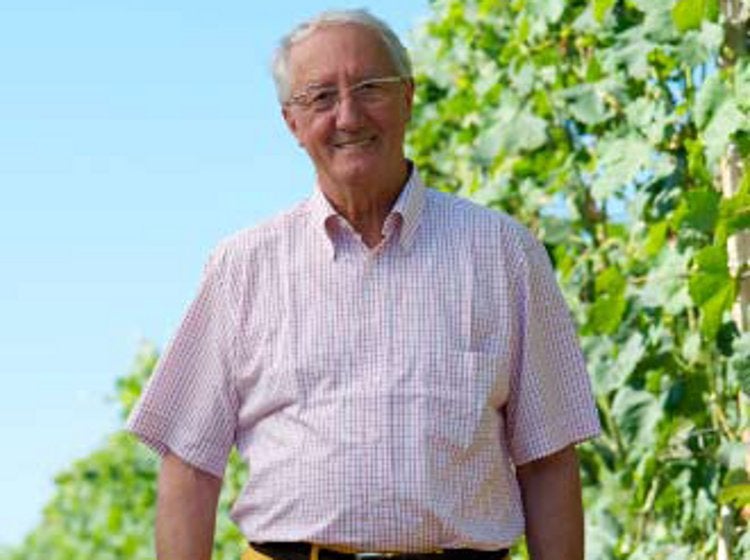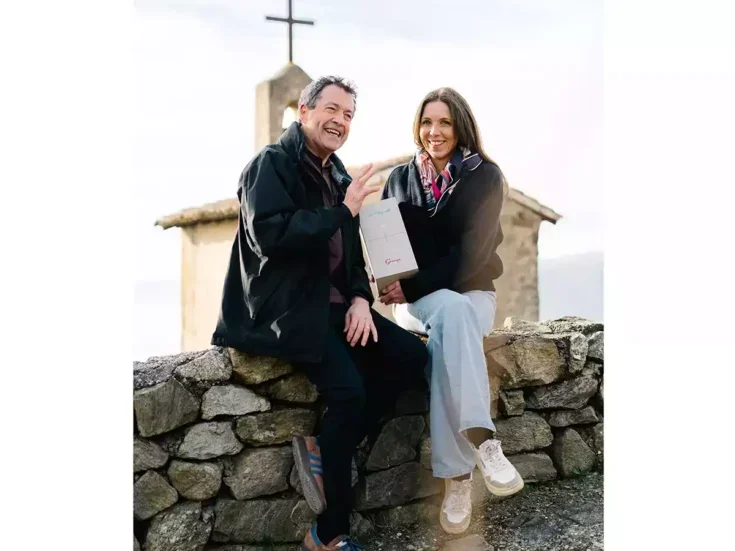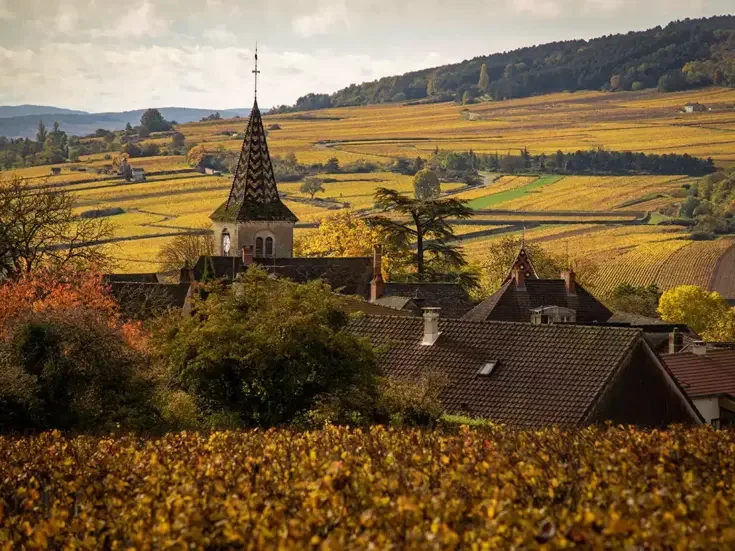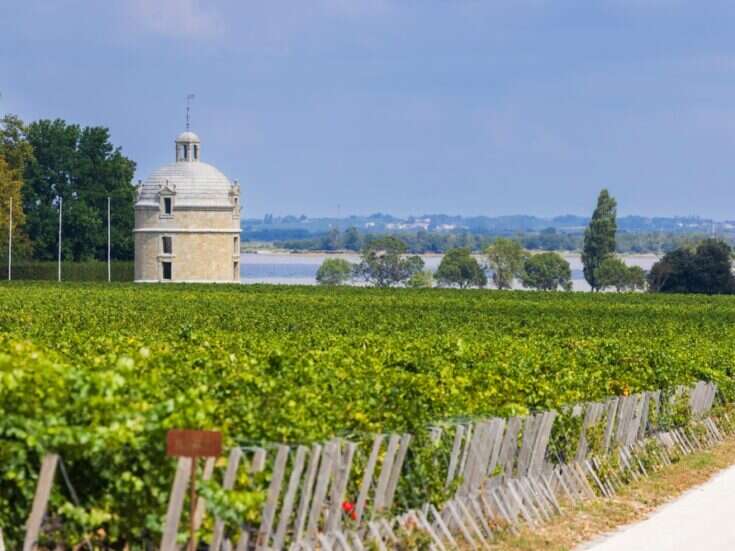
Celebrated Barbaresco producer Angelo Rocca, of the family firm Albino Rocca, died on October 8, 2012, in a plane crash. Rocca, 64, was piloting his own ultralight plane not far from the Piedmont city of Alessandria when he crashed into a field just meters from the A21 highway. According to reports, there was dense fog in the area at the time, although the reasons for the accident are unknown. Rocca’s girlfriend, Carmen Mazza, 55, also died in the accident.
Angelo Rocca’s small yellow plane had become a fixture in the skies above his home village of Barbaresco, and friends say he was a passionate pilot who also enjoyed cars and motorbikes. “He loved flying and fast cars, and he really lived life to the fullest,” says Aldo Vacca, managing director of the cooperative cellar Produttori del Barbaresco. “Angelo wasn’t like other people here. Most people in Barbaresco are closed and extremely reserved and keep to themselves. Angelo was always so full of life, incredibly outgoing and generous,” continues Vacca. “He was always willing to lend a hand to other producers, and unlike so many other top producers in the Langhe, he was very happy to share control of the family firm with his daughters and sonin- law. We’ll really miss him.” Barolo producer Mauro Veglio and his wife Daniela agree: “With his experience, he always helped us so much, especially during difficult times. He had extraordinary energy that he fueled into his great passion for wine, and not just for Barbaresco but for our entire area. He contributed enormously to the growth of Barbaresco. And his cheerfulness and positive energy were contagious. Everyone who met him, even for a brief encounter, could not remain indifferent,” says Veglio.
“Besides being a great winemaker, Angelo had intense energy and was always on the go. He had an innovative spirit and always wanted to try new things. When it came to winemaking, he was continuously looking for new ways to improve quality. His death is a great loss to Barbaresco on many levels,” says fellow producer Bruno Rocca (no relation to Angelo).
According to Marc DeGrazia, a broker and importer who worked with Albino Rocca for more than 26 years, “Angelo’s great enthusiasm for life pushed him on a quest for new experiences — from traveling all over Europe in a camper van pulling a trailer and small boat, to fast motorcycles and, eventually, to flying. He had an unquenchable thirst for freedom.” Like most producers in Barbaresco, Angelo came from a long line of grape growers, and the family has been cultivating Nebbiolo for over a century.
In 1955, Angelo’s father Albino founded the winery and he and his father Giacomo began bottling wines from the family’s vineyards in Barbaresco, releasing their first Barbaresco with the Albino Rocca label in 1971. The mid-1980s were a pivotal time for Angelo, who had been working at the winery since he was 15. “In 1986, we began bottling our entire production. I also started spending time with Elio Altare and other Barolo producers who were making a softer, fruitier style of Barolo,” Angelo told me during a visit to his winery in May 2012. “That same year, a group of us went to France, and we came back determined to improve quality for Barolo and Barbaresco. I began lowering yields by thinning out the grapes with a green-harvest, which was quite radical at the time in the Langhe, where growers still sold grapes and wanted quantity. Even my own uncle told me I was crazy. In 1986, I also began aging our wines in barriques.”
By the late 1980s, Angelo understood the great potential of two of his vineyards, Ronchi and Loreto, and in 1990 he began vinifying and bottling the two crus separately. Today, Albino Rocca’s polished and elegant Barbarescos — Ronchi, Ovello Vigna Loreto, and Vigneto Brich Ronchi Riserva — are some of the most acclaimed in the denomination. In 2004, Angelo’s innovative spirit shone through once again when he decided he’d had enough of barriques and started using large, neutral casks. After several years of experimenting, he decided on 20hl (528-gallon) casks made of made of both German and Austrian oak, saying, “I was never very happy with barriques and am very happy that the market now wants more elegant, less evidently oaked wines, which is what I prefer.”
Angelo was also a trailblazer in improving vineyard management. In the 1970s, Barolo and Barbaresco producers, like winemakers throughout the world, embraced a new generation of industrial and chemical agricultural products designed to combat weeds and parasites. “By the mid-1980s, we realized these products had sterilized the soil and that we had, to all effects, poisoned the environment,” Angelo told me. In 1992, he converted to Italy’s regulated lotta guidata method of vineyard management, eschewing harsh chemicals and using only organic fertilizers and small doses of copper and sulfur when needed to combat fungus diseases.
According to friends, Angelo’s enthusiasm for flying rivaled his passion for wine. “Above all, he loved flying over Barbaresco to admire the beauty of the Langhe hills, the Tanaro River, and the medieval castles and towers below, with the Alps on the horizon. We flew with him, and we understood,” explains Daniela Veglio.
Angelo Rocca leaves behind his three grown-up daughters, Daniela, Monica, and Paola, and his son-in-law Carlo, all of whom work at the firm. According to Monica, “As my father’s dear friend Donna McDonald recently said, ‘One of Angelo’s most notable traits was that he was always moving forward toward the next project, the next idea, the next vintage.’ We hope that we can live up to his example.”
Since Monica, her sisters, and her brother-in-law have worked closely with Angelo for years and had already taken on much of the responsibility of running the winery and winemaking, loyal fans of the estate can be sure that they will, indeed, continue Angelo’s high standards.






